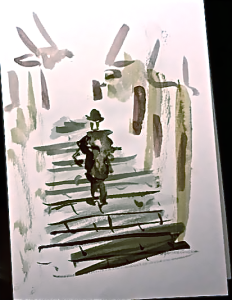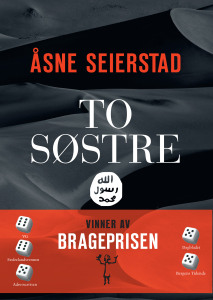 Literary Wives is an on-line book group that examines the meaning and role of wife in different books. Every other month, we post and discuss a book with this question in mind:
Literary Wives is an on-line book group that examines the meaning and role of wife in different books. Every other month, we post and discuss a book with this question in mind:
What does this book say about wives or about the experience of being a wife?
Don’t forget to check out the other members of Literary Wives to see what they have to say about the book!
- Ariel at One Little Library
- Emily at The Bookshelf of Emily J.
- Kay at What Me Read
- Lynn at Smoke & Mirrors
- Kate at Kate Rae Davis; Reading Culture, Finding God
- Carolyn at Rosemary & Reading Glasses (on break)
- Cecilia at Only You (on break)
- Audra at Unabridged Chick (on break)
 Z: A Novel of Zelda Fitzgerald by Therese Anne Fowler
Z: A Novel of Zelda Fitzgerald by Therese Anne Fowler
I have never really been drawn to stories about the “Jazz Age” or the people who go with it. And after my ‘blah’ experience reading about Ernest Hemingway and his wives a few months ago, I was worried I’d feel the same way about this book. Happily, I ended up enjoying this one so much more; maybe because I found it more focused on the wife than the husband, maybe their story is just more interesting to me, or maybe because we had more time to get to know Zelda than we did any of the Hemingway wives. What a complex woman, and an interesting life she lived. But sad, too, and at times, maddeningly frustrating.
The book touches on other aspects of Zelda’s life, but for the most part it’s about her relationship with F. Scott Fitzgerald, because once they’re together, everything else she does (or tries to do, or has done to her) is influenced by her husband and the circumstances of their life together. Which makes me think about how this might be true for all of us, even if we like to think otherwise.
That commodity [time], once so plentiful that we spent it on all-day hangovers and purposeless outings with people I’ve long forgotten, has become more precious than we ever imagined it could be. Too many of our dear ones are ruined now, or gone. Nothing except luck protects you from catastrophe. Not love. Not money. Not faith. Not a pure heart or good deeds – and not bad ones either, for that matter. We can, any of us, be laid low, cut down, diminished, destroyed.
I’ve only ever read this one account of the marriage of Scott and Zelda, but according to this book, they seem to be devoted to each other; they don’t always like each other, but they can’t seem to let each other go. (Unlike the feeling I got while reading about Hemingway and his wives.) However, their life together is one wild and rocky ride with many obstacles, some of which seemed impossible to overcome – especially given the time they were living in. What might she have accomplished in a different life?
Obstacles:
1) Scott’s alcoholism. Even though I knew how the story would go (as many of us do), I still kept hoping and wishing he would pull himself together. As with my comment about Zelda, think of what he could have accomplished had it not been for his fondness for the drink. I think, more than anything, Scott’s alcoholism was the biggest obstacle of their happiness. All the insecurities, arguments, differences they had were exaggerated and not properly dealt with as long as Scott was drunk or thinking about getting drunk.
2) Zelda’s mental illness. Zelda’s illness was misdiagnosed (and badly handled by everyone involved), and she ended up spending a lot of time in institutions “getting well”. This put a strain on her relationship with Scott, their finances, and sadly, her relationship with their daughter Scottie. But in addition to this, it was later discovered that the “treatments” she received actually had a detrimental effect on her health, and she was plagued by it for the rest of her life.
3) Finances. Scott and Zelda were sometimes rolling in money, but just as often their finances were unstable and unpredictable over the years, partly because of the nature of Scott’s career, but also because of their over-the-top lifestyle and Scott’s alcoholism. Zelda worried about the money, but was told by Scott that it was his concern, not hers.
4) Ernest Hemingway. The reason I’m adding Hemingway to this list is because the book suggests that Zelda saw him as the reason for the “disaster” they made of their lives. Scott and Ernest became close as Scott ‘helps’ him over the years. And lends him money. But at the same time, Zelda believes that Ernest is convincing Scott that she is the reason for all Scott’s troubles. There are times, after he and Ernest become friends, that he accuses Zelda of being the reason he can’t produce another novel, or the reason he needs to keep drinking. It’s interesting to compare the way Hemingway is portrayed in this book versus in Mrs. Hemingway. I’m sure there are other perspectives of their friendship out there, as well. And now I see why people are so intrigued by their stories.
And the reason we are here…
 5) Differing views about Zelda’s role as a wife. Scott was more traditional than Zelda in his views of wifehood and motherhood; he wanted to be able to support her, provide her everything she needed/wanted, and thought that she should be content with this. He also believed that making her husband happy was her greatest priority as a wife. Zelda wanted something for herself (as most of us do) outside of being a wife and mother. She was very talented as a painter, writer and dancer, and attempted to achieve success through all of these venues. But Scott dismissed them as “hobbies”, and wished for her to cut down on them so she would have more time to devote to her husband. He also asserted his dominance in matters such as pro-creation (or not), naming their child, and putting his own name on her published stories. Unfortunately for Zelda, Scott’s views were supported by his friends, her doctors (“You realize now that a wife must first tend to domestic matters. Good. This is paramount to every woman’s happiness.“), society in general, and even her mother (“Certainly women deserve time to pursue hobbies and such, and can find fulfillment in interests of their own, but we are not entitled to assert them over our husbands’ priorities and wishes. Perhaps if you will accept this, your health will improve and subsequently so will your happiness.”). And leaving him was not an option because of the custody laws at the time.
5) Differing views about Zelda’s role as a wife. Scott was more traditional than Zelda in his views of wifehood and motherhood; he wanted to be able to support her, provide her everything she needed/wanted, and thought that she should be content with this. He also believed that making her husband happy was her greatest priority as a wife. Zelda wanted something for herself (as most of us do) outside of being a wife and mother. She was very talented as a painter, writer and dancer, and attempted to achieve success through all of these venues. But Scott dismissed them as “hobbies”, and wished for her to cut down on them so she would have more time to devote to her husband. He also asserted his dominance in matters such as pro-creation (or not), naming their child, and putting his own name on her published stories. Unfortunately for Zelda, Scott’s views were supported by his friends, her doctors (“You realize now that a wife must first tend to domestic matters. Good. This is paramount to every woman’s happiness.“), society in general, and even her mother (“Certainly women deserve time to pursue hobbies and such, and can find fulfillment in interests of their own, but we are not entitled to assert them over our husbands’ priorities and wishes. Perhaps if you will accept this, your health will improve and subsequently so will your happiness.”). And leaving him was not an option because of the custody laws at the time.
Despite all this, it’s possible that they cared enough about each other that, under other circumstances, they might have been able to work it out to some degree, but their discussions about it were always either fueled by alcohol or cut short by it. So there wasn’t much of a chance to find out.
Scott:
You don’t understand, Zelda, and you never will because your life is nothing but a series of low-risk amusements. Shopping and hair appointments and painting lessons and parties. I seek information about my very existence, my fate, not out of some idle curiosity but because our future depends on this book’s performance.
…men need compensation for the pressures they face every day. They need to know that all their effort matters to the woman in their life. We give up our freedom, devote our entire selves to one woman… so is it too much to want that woman to make us her favorite activity? (Yes!)
You’re not a ballerina, you know; you’re my wife. You need to start devoting your time to your actual duties.
It’s my life that makes yours worthwhile!
Zelda:
Our ruts were now so deeply cut into the landscape, and we were so tired and worn, that neither Scott nor I could steer ourselves anyplace new.
Why was it that every time I finally chose, every time I did, my efforts failed – I failed – so miserably? Why was I so completely unable to take control of my own life? Was there any point to it, for me? I’d thought it was Scott I was fighting against, but now I wondered if it was Fate.
Upon swallowing this black, bitter truth [of worthlessness], I began to shrink, and before long grew so tiny within the world that I very… nearly… disappeared.
Scott and Zelda had so many factors conspiring against them, some of which were of their own making, they didn’t seem to stand a chance. Yet, according to this fictional account, they stuck together to the very end, claiming devotion to one another. Zelda even says, at the end of the book, “Even now I wouldn’t choose differently than I did.” Because of the extraordinary circumstances of her life, her marriage was made public and immortalized, but I think she contended with many of the same issues any other woman did at that time (and some still do); more opportunities, and a voice/life independent of her husband’s.
Scott had many faults; he was insecure, pompous, selfish, and he had a deadly weakness for the drink. But his biggest fault, I think, was his obsessive dependence on Zelda, and not being able to let her go.
*****************************************************
A final thought: As I was reading this, I was thinking about the fact that Scott and Zelda’s days of socializing and partying were happening at about the same time as L.M.Montgomery was writing the Emily books, which I have been reading this winter for the Emily Readalong. Their lives and their books feel like two completely different worlds. Did Montgomery ever read any of the Fitzgeralds’ work? Was she influenced by it? Or vice versa?
******************************************************
On the first Monday in June we’ll be discussing The Awakening by Kate Chopin – you’re welcome to read along and join in the conversation!
Advertisements Share this:




